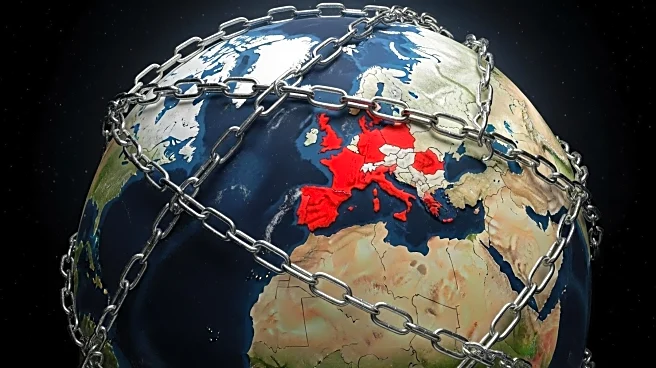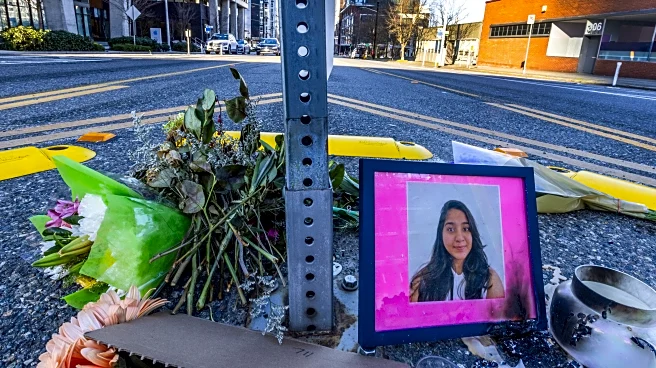What's Happening?
Europe has reimposed 'snapback' sanctions on Iran, citing violations of the Joint Comprehensive Plan of Action (JCPOA). The sanctions, which were originally lifted under the 2015 nuclear deal, have been reinstated due to Iran's failure to meet its nuclear commitments. The sanctions target Iran's arms, oil, and financial sectors, aiming to curb its nuclear ambitions. This move comes amid heightened tensions in the Middle East and follows unsuccessful diplomatic efforts to bring Iran back into compliance with the JCPOA.
Why It's Important?
The reimposition of sanctions marks a significant escalation in the international community's response to Iran's nuclear activities. It underscores the challenges of maintaining the JCPOA and the broader geopolitical tensions involving Iran, the U.S., and European powers. The sanctions could further isolate Iran economically and politically, potentially destabilizing the region. The move aligns Europe more closely with the U.S.'s 'maximum pressure' strategy, which could impact future diplomatic negotiations and regional security dynamics.
What's Next?
Iran has expressed defiance in the face of the sanctions, and its response will be critical in determining the next steps. The international community will likely continue to push for diplomatic solutions, but the potential for further escalation remains. The situation may influence upcoming discussions at the United Nations and within the European Union. The impact on global oil markets and regional alliances will be closely monitored, as the sanctions could have far-reaching economic and political consequences.










